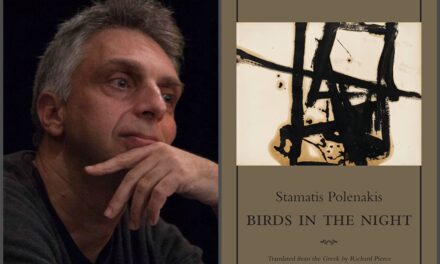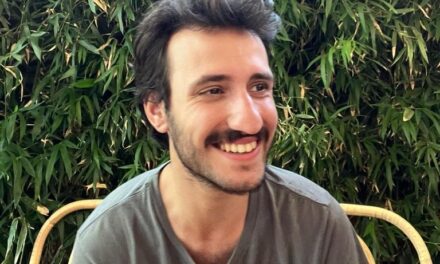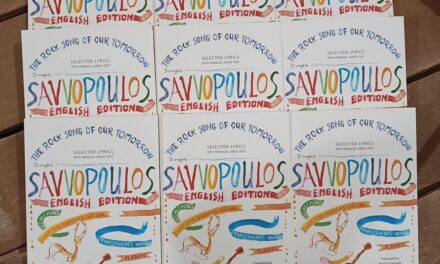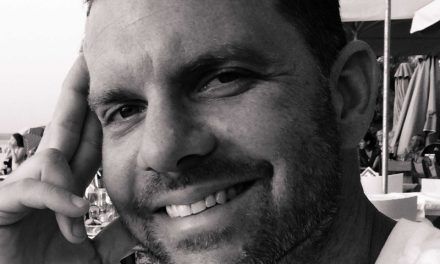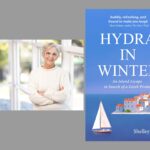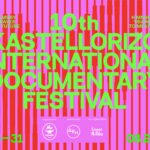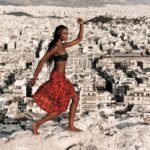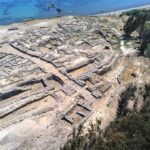Nana Papadaki is an actress, director and writer. She studied acting at the Greek Art Theater Karolos Koun, film directing at the E. Hatzikou Film School, while she also graduated from the Athens University of Economics & Business and the German School of Athens. She has collaborated with major directors in several theatrical plays staged, among others, at the Art Theatre Karolos Koun, the National Theatre of Greece, the National Theatre of Northern Greece, the Athens Epidaurus Festival etc.
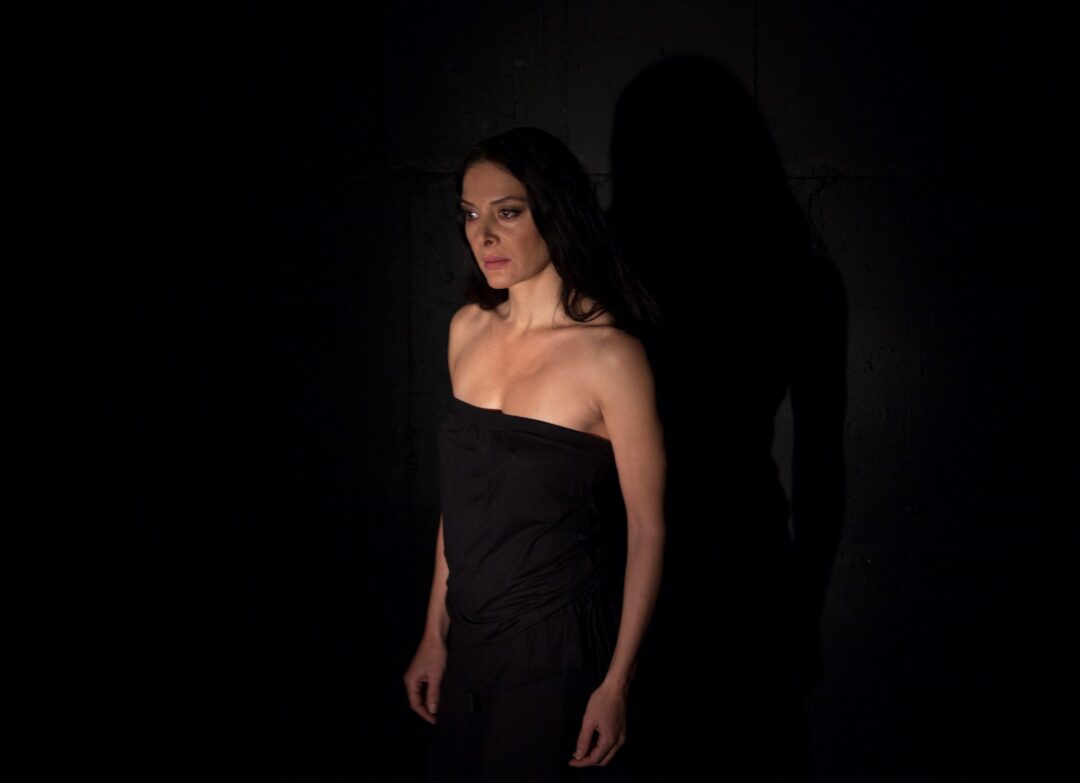
She has participated in major works of the Greek and international repertoire and has performed several leading roles. She has directed Plato’s philosophical dialogue Ion for the Aeschylean Festival, Krista Wolf’s Cassandra, in the German original text, directed and interpreted the poetic monologue “Beneath the shadow of the mountain” from the Fourth Dimension by Yannis Ritsos.
Her poems have been published in online and printed literary magazines, such as Poiitiki, Poiitika, Intellectum, etc. and has been translated in German and Spanish. Her most recent theatrical work is Niki, tonight at the party, a play about Niki Triantafyllidi, directed by Roula Pateraki. Αρχέγονη (Melani, 2023) is her fourth poetry collection.
Your latest writing venture Aρχέγονη [Primordial] was recently published by Melani. Tell us a few things about the book.
I followed an inner urge that kept calling me, persistently and imperatively, to listen to myself, very deeply, to see who I am, what triggers my inner life. To erase everything I’ve known so far, until a solid and unnegotiable core remains. I started inspired by Shakespeare’s The Tempest, read a wonderful book by Ted Hughes οn Shakespeare’s theater, studied, wrote, deleted it all. I was determined not to write another word unless it was exactly what I wanted to say. In the midst of this whirlwind and mental struggle, “Sycorax” appeared, creatures that led me to one another. I attribute this process to an almost “primordial” force. Hence the name of the book.
“The book consists of fragments of the experience of being alive. It is what remains of a process of self-awareness, destruction and creation.” Tell us more.
Knowledge is not acquired through certainties. I reckon that the closer you get to a core, the more you run the risk of breaking, of having the flesh come off your bones, if I may say so, of falling into pieces, of not recognizing yourself anymore; and then having to take these pieces and, by a very personal “alchemy”, to unite them in a body the same as your own, but also very different, familiar, yet foreign.
It’s these pieces, these fragments that I lay bare in my poetry collection, as remnants of a knowledge that I feel came and met me in the course of my life, my theatrical work and the writing of the book. It is, in a way, my most personal book, because it looks straight into my inner life, without any need for embellishment or wordplay. I am this wildness. This is how the world has come to me. This is my body, from the inside. This is the experience I try to transmute through art and life.
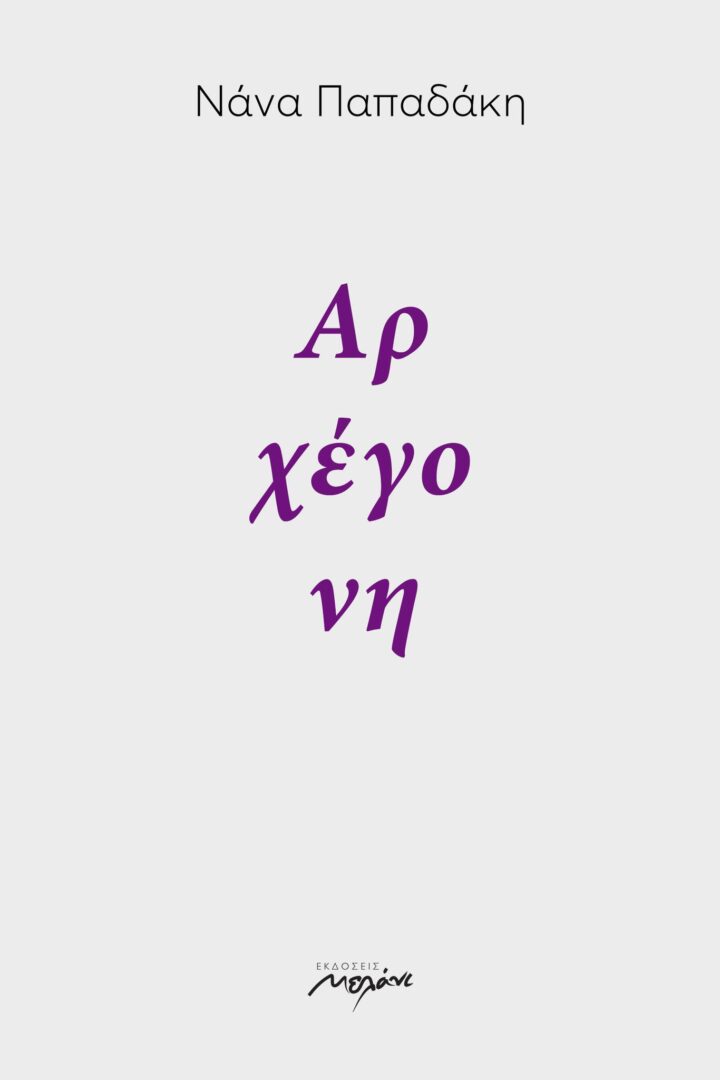
You have published four poetry collections so far. What has changed and what has remained the same in this poetic course? Are there recurrent points of reference in your books?
The core remains unchanged. However, I can now detect the starting point of some situations within me and look, first of all, into myself. What I find as a common driving force is the need to transcend. Whether in society, or in love, or in my female nature, I have tried various guises and now perhaps I have reached my core. I try to make each book different, to look very carefully inside myself, to fall in love with my subject and not lose the sense of truth. I swim, along with all people, in the great river of art and life. What some people call “metaphysical”, to me, is perfectly natural; I just define nature as something much bigger than what we usually perceive. And the metaphysical is part of Nature.
What about language? What role does language play in your writings?
I can’t separate language from content. Every content chooses its language and the path that corresponds to it. What I seek is the human, not the language. I think I start from a state of ignorance and dumbness. Language is a mirror that we cannot dictate to show what we want. In addition, language is not what it looks like on paper, but what breathes underneath. And I’m afraid that technique doesn’t save you from who you are. Nor art, of course. The opposite.
An actress, a director, a writer. Where do all these attributes meet? What is that binds them all together?
My need to preserve who I am. To ensure that nothing will corrupt or change me. I have many ways out and refuges so that I can remain human despite difficulties and temptations. Now everything is inextricably linked to the other. As an actress my starting point is the author’s words, because I recognize the work hidden behind the choice of each word; I don’t like to violate the author’s mental and spiritual world since as an actor, I understand, almost instinctively, the qualities that accompany each poem, its physical starting point, and, with my little directing experience, I admire the structure and construction of each book recognizing, behind the structure, the mental makeup of the author’s personality.
It is a game that engulfs me, even in life. This is how I act, this is how I think. If you get to the core of your art, one thing leads to another. In any case, what unites them all is logos. That is, in the texts that I choose to present I am fascinated by words; I am interested in the material of poetry, the word as an “exercise of death”, as I mention in the book as well.
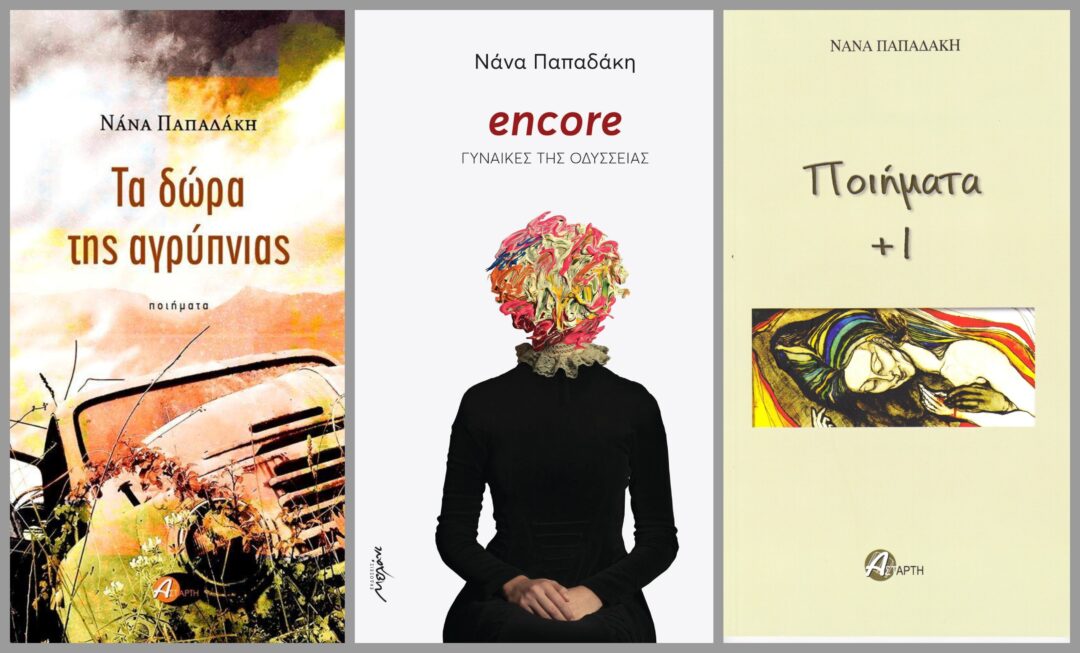
In the last few years there has been an extraordinary burgeoning of poetry in every form: graffiti, blogs, literary magazines, readings in public squares. How is this strong civic presence to be explained? Could poetry offer new ways to imagine what can be radically different realities?
In recent years we have witnessed the rise of the extreme right everywhere. This happens for some reasons. Human life has lost its value; it is now taken for granted that we only have bad in us and we doubt that there is good as well. We have left transcendence in the hands of religion, as if humans cannot transcend ourselves in this life, as if this is supposed to happen only after death. Aren’t we supposed to live before we die? All arts wonder about the effect they have on people. How did we get here? What have we done, what haven’t we done? What do we do from here onwards? Which is the role of art?
Poetry’s need for public address is not a question of quantity, number, but of faith in humans’ ability to become better, to converse, to transcend. We need to somehow reconsider our relationship with the commons. In all that happens, readers choose the stimuli that preserve and nurture the spirituality and deepening needed in their relationship with poetry.
How do Greek writers converse with global literary trends? Where does the local/national meets the global and the universal?
I think the same question concerns all arts, but also society itself. Ιn the present era, here in Greece, we should focus on cracks. In all areas, in the economy, in politics, in art, everywhere. We constantly try to imitate something that comes from abroad, an economic or cultural superpower, or from a deep past, heroic, most of the time, an achievement of the past, avoiding and, at the same time, rendering our trauma so blindingly present that it’s a wonder that we have not yet fallen on the precipice so blind that we walk. We don’t stop for a moment to bend over our trauma and tend to it. This means that first we have to admit it. We pretend to be international to avoid our trauma, we invoke our Greekness to avoid opening ourselves to the unknown.
However, there is no recipe. One tendency is hostile to the other, but, in my opinion, this issue is global and concerns smaller economies and languages like ours, which are colonies of other languages and economies. A writer who lives abroad could become famous with a good book. Great books are written here as well, we have, in fact, international writers, but our potential is limited, predictable, introverted. I don’t like to imitate those who are dominant economically and, therefore, culturally. I would like us to recognize and delve into our own strengths, but, imaginatively, without blinkers. Human nature remains the question. Greekness is a journey.
*Interview by Athina Rossoglou
TAGS: LITERATURE & BOOKS | READING GREECE

